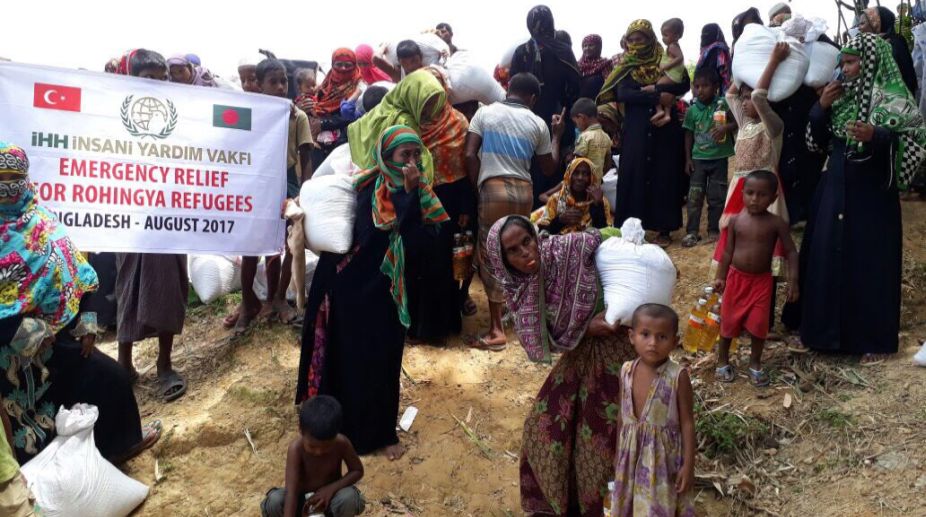A UN special rapporteur on human rights has urged the Security Council to take decisive action to resolve the crisis in Myanmar’s Rakhine state, noting that the crisis “reaches beyond Myanmar’s borders”.
“The crisis in Rakhine state has not only been decades in the making but has for some time gone beyond Myanmar’s borders. For a very long time now this issue has not been simply a domestic affair,” said Yanghee Lee.
Advertisement
“It has been cultivated for decades in the minds of the Myanmar people that the Rohingyas are not indigenous to the country and therefore have no rights whatsoever to which they can apparently claim,” she said in her report to the Third Committee, the UN General Assembly’s main body dealing with human rights and social and humanitarian issues, Xinhua news agency reported.
In particular, the special rapporteur stressed that given the gravity of the situation, it was uncertain how long it might take for the government to establish conditions for the safe and dignified return of the Rohingyas and to ensure they can rebuild their lives.
Furthermore, she noted that while the plight of the Rohingyas remained her main concern, the country had numerous other human rights challenges, including consistent reports of religious intolerance against Christians and Muslims across Myanmar.
It was unclear whether Myanmar’s peace process had advanced since the signing of the nationwide ceasefire agreement two years ago, said Lee, noting that all those responsible for human rights violations must be held accountable and that this should begin with full access for the UN Human Rights Council’s fact-finding mission.
The special rapporteur also urged the government to publicly embrace all the communities which make up the population of Myanmar and use its majority in Parliament to strike down all discriminatory laws, to show that all groups in Myanmar have equal rights.
“I have in the past commended Myanmar’s flourishing, widening democratic space. However, it seems to me that national legislation is effectively resulting in the criminalization of legitimate expression,” said Lee, calling on the government to press ahead with constitutional reform “to allow for proper operation of the rule of law”.
Furthermore, the reform of laws that contravene human rights standards should be prioritized, she added.
On August 25, a Rohingya militia allegedly attacked three police posts in Rakhine state and sparked the government’s return of attacks against the local villages. The exchanges of fire have caused hundreds of thousands to flee into neighbouring Bangladesh.
UN special rapporteurs and independent experts are appointed by the Geneva-based Human Rights Council to examine and report back on a specific human rights theme or a country’s situation. The positions are honorary and the experts are not UN staff, nor are they paid for their work.











